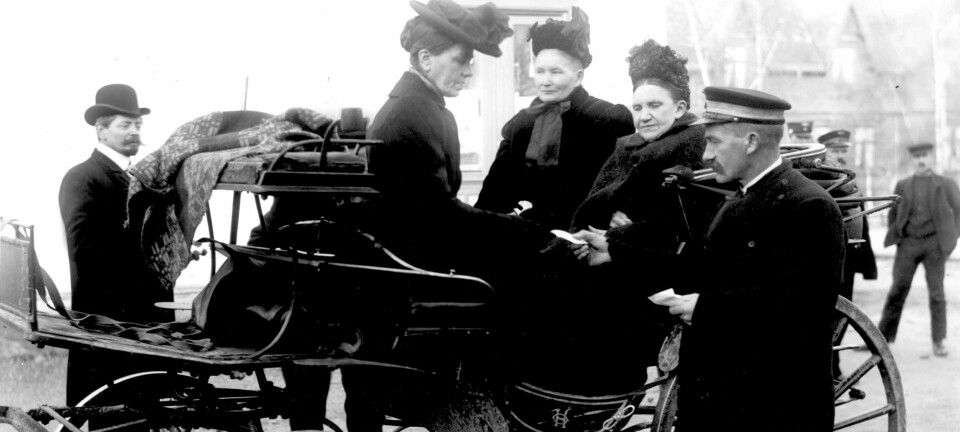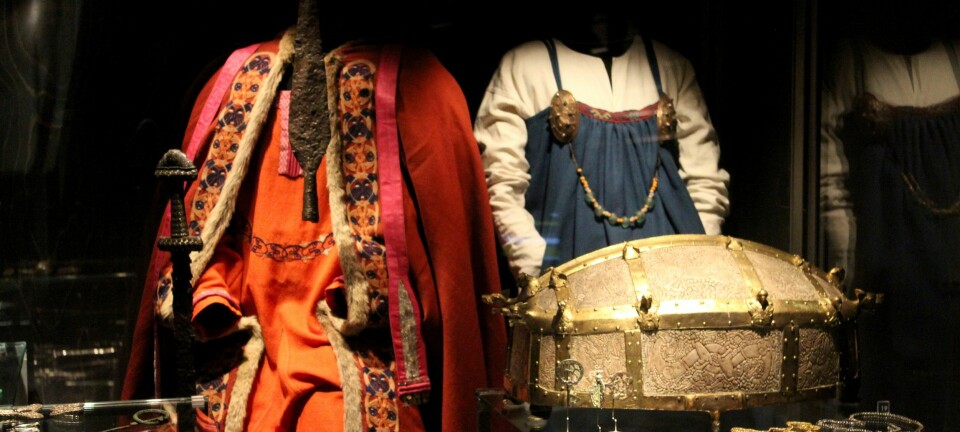
Political colour is half genetic
New study provides definitive evidence that heritability plays a significant role in the formation of political ideology, regardless of how ideology is measured, the time period or population sampled.
Worry not; you still have free will, and no, not everything is predetermined by the DNA baggage you were born with.
Nevertheless, a new international study shows that our genes can explain up to 60 percent of our political actions: our political commitment, who we vote for and what ideology we support.
The findings come from a gigantic study of 12,000 pairs of twins. The study turns upside down the prevalent scientific understanding of what influences our voting behaviour, according to one of the Danish researchers behind the study:
“If it turns out to be correct in a deep philosophical sense – i.e. true – then it means that the social sciences have so far overlooked an important variable in the explanation of human behaviour: biology,” says Professor Robert Klemmensen of the Department of Political Science and Public Management at the University of Southern Denmark.
This is obviously very exciting, because it means we’ll slowly be moving towards a paradigm shift where we need to calibrate our models to also include biological factors.
”This is obviously very exciting, because it means we’ll slowly be moving towards a paradigm shift where we need to calibrate our models to also include biological factors.”
Results shocked researchers
Klemmensen and his international research colleagues used data from a combined sample of over 12,000 twin pairs, pooled from nine different studies conducted in five western democracies (Australia, Hungary, Denmark, Sweden, and the US), and sampled over the course of four decades.
The study shows that identical twins – i.e. twins with 100 percent identical genes – agree far more on questions about e.g. redistribution, political participation, freedom and equality than fraternal twins – i.e. those with fewer identical genes.
The researchers hypothesised that since twin pairs tend to grow up in the same environment, any differences must be attributable to genes. This assumption was further reinforced when they observed generally identical tendencies in different population groups.
We believe that there is now sufficient evidence that in terms of ideology at least there is a biological component that says something about our attitudes, and that’s something we need to start taking seriously.
“We were shocked to see how similar the results were across ages and national borders,” says Klemmensen.
“The Danish twins in the study were aged between 20 and 40, while those from Minnesota, US, were in their 50s. Still, the estimates we got regarding political ideology and political participation are virtually identical – in fact so similar that we could hardly believe it.”
Proof that genes influence our vote
The new study confirms previous studies and the researchers believe their conclusion is solid:
“We provide definitive evidence that heritability plays a role in the formation of political ideology, regardless of how ideology is measured, the time period or population sampled,” they write in the journal article.
Klemmensen adds:
”We believe that there is now sufficient evidence that in terms of ideology at least there is a biological component that says something about our attitudes, and that’s something we need to start taking seriously.”
Genes affect us – they do not define us
Some would probably find it a bit depressing to hear that political thoughts and actions can basically be reduced to some specific genes that we ended up with.
Does that mean that we have no free will at all?
Of course we do, says the Danish professor.
”Our study shows that there are biological factors that have an effect on how our lives turn out in certain areas. That’s not the same as saying we are deterministic creatures and cannot choose otherwise. But these factors do have an effect on the choices we make.”
----------------------------
Read the Danish version of this article at videnskab.dk









